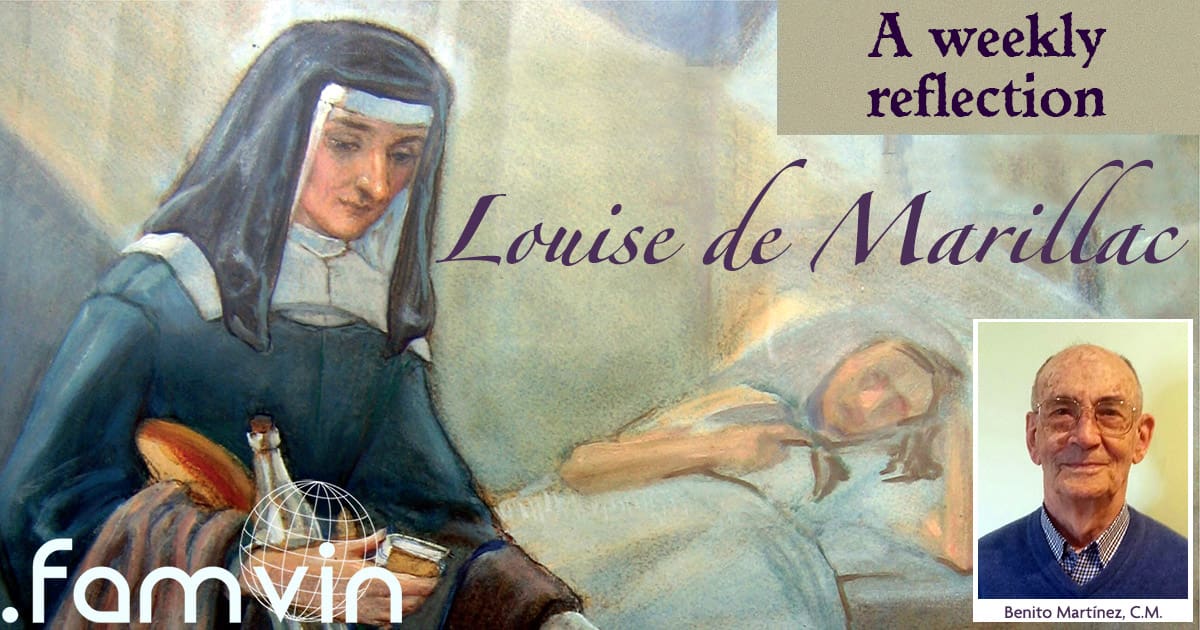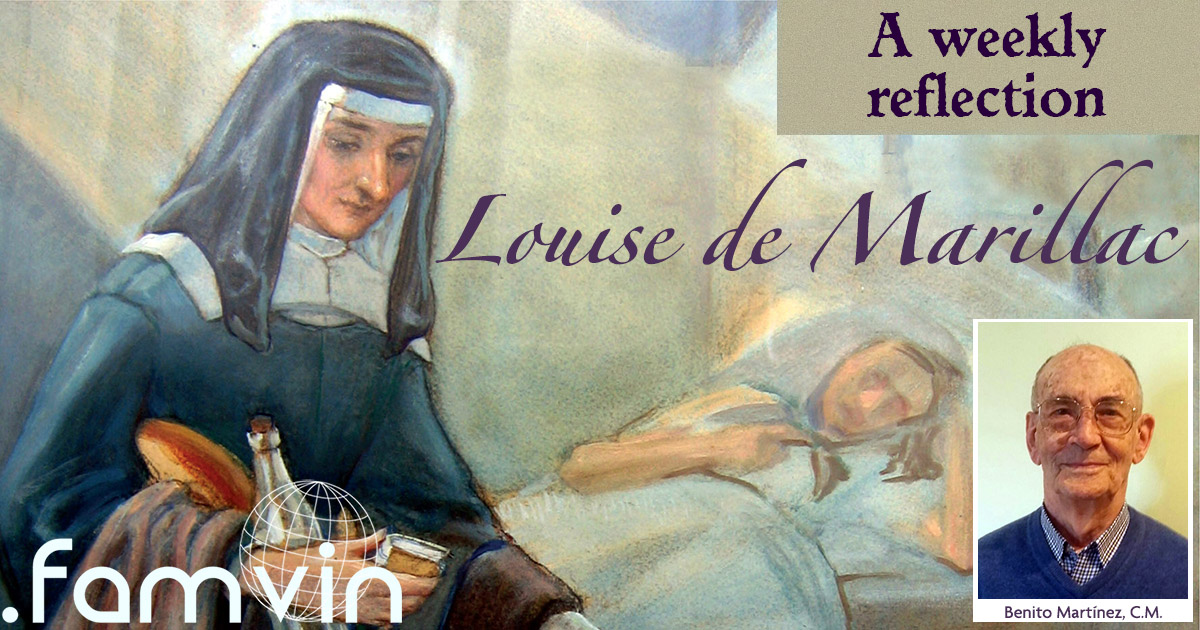Friendship • A Weekly Reflection with Louise
“Mon Dieu, my dear daughter, how your letter and the thoughts [you] sent to me console me! Indeed, I must confess to you that the feeling has spread through every part of my soul” (CCD I, 34).
“What shall I tell you now about the one whom your heart loves so dearly in Our Lord? […] I must conclude by telling her that my heart will have a very fond remembrance of hers in that of Our Lord” (CCD I, 29).
And Saint Louise manifests her affection in a sentence phrase she wrote in the interior of a letter:
“Reply of our honorable Father in January 1656, to this letter of the abbot of Meilleraye, in which should be noted the spirit of humility, meekness, tolerance, prudence and firmness, and particularly the spirit of God in it, so that we must believe that he always acts according to the effects that God makes known to him, so that he is eternally glorified” (CCD, letter 1998).
Several paragraphs from and to Louise de Marillac, manifesting a close friendship.
Reflection:
- When Vincent de Paul met Mademoiselle Le Gras, at Christmas 1625, she had turned 33, had an eleven-year-old son, and a husband who was deathly ill. From then on, Louise de Marillac was so united to Vincent de Paul, that the person of this man will be projected continuously in her life, while she will be the firm support of countless works of charity. She profoundly venerated and loved Vincent de Paul in God, and he loved her tenderly in our Lord. They were friends all their lives with a sincere friendship, away from all the danger of which they warned the Daughters of Charity: “Our sisters shall be mindful to show great respect to priests, particularly to the chaplain of the hospital to whom they should show no familiarity. If necessity requites them to speak to him, they shall always do so together or in the company of another person” (Louise de Marillac, Letters, Conferences, Documents, p. 773).
- The foundation of their friendship resided in the goodness that each one saw in the other; were based on the equality that the priest gave the Lady without wanting to impose himself, and on the affective union that was created between the two. It was a friendship that made two people into one for the good of the poor.
- They wanted the Daughters of Charity to live this in the community, to be considered as a group of friends who love each other, because they need friendship, otherwise the Sister is left alone and the community is broken. Changing of community does not kill friendships. It is known that there are people who confess excitedly that wherever they go they leave good friendships. What destroys the community is that the Sisters do not find friends within the community nor seek them out. It is a reason why St. Vincent and St. Louise insisted that they have a time of recreation all together. For friendship is based on the frequent and cordial treatment of people, who come to know each other, to tolerate each other and to love each other. Without love there is no friendship to share the same vocational project.
Questions for dialogue:
- “Friends in everything and forever.” Is this a reality nowadays?
- Should parents be friends with their children? In what sense?
- Is there sincerity among friends? And truthfulness? And freedom? And respect?
- Would you dare tell a fellow or friend your faults? And would you accept to hear them from him or her?
Benito Martínez, C.M.








0 Comments